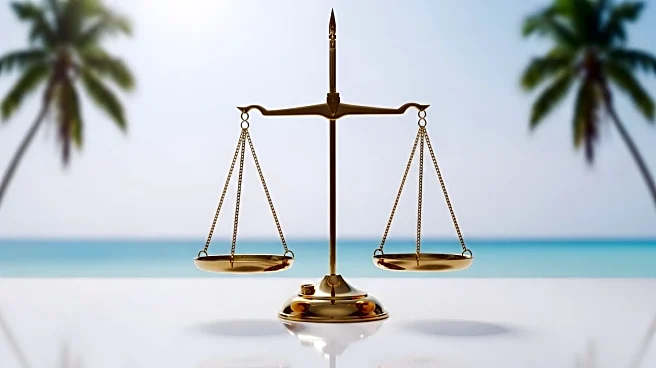What's Happening?
Maldives President Mohamed Muizzu has ratified a controversial media law that imposes significant fines and allows for the closure of media outlets that violate its provisions. The law, known as the Maldives Media and Broadcasting Regulation Act, was passed by Parliament with a majority vote, despite opposition protests. It includes fines of up to $1,620 for journalists and $6,485 for media companies, and permits authorities to suspend media licenses and halt broadcasts if deemed necessary. A seven-member committee will oversee compliance and investigate offenses. The law mandates respect for the nation's constitution, Islam, national security, social values, and human rights.
Why It's Important?
The ratification of this media law in the Maldives is significant as it could impact press freedom and the operation of media outlets in the country. The law's stringent measures may lead to self-censorship among journalists and media companies, affecting the quality and breadth of news coverage. This development is crucial for international observers and human rights organizations concerned with freedom of expression. The Maldives, a popular tourist destination, has a relatively short history of democracy, transitioning from autocratic rule in 2008. The law may influence the country's democratic processes and its international reputation.
What's Next?
The implementation of the Maldives Media and Broadcasting Regulation Act will likely lead to increased scrutiny of media practices in the country. Media outlets may need to adjust their operations to comply with the new regulations, potentially leading to legal challenges or appeals. International human rights groups may respond with criticism or calls for amendments to the law. The government will appoint a committee to ensure compliance, which could lead to further investigations and enforcement actions against media entities.










